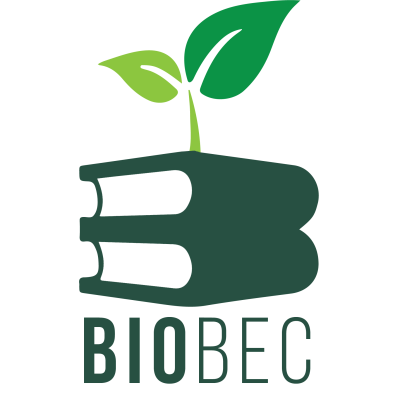The centres cover the Northern European region (Denmark, Finland, Germany, Ireland), the Mediterranean region (piloted by Italy and Spain but also focusing on Greece and Portugal), and the Central and Eastern Europe region (piloted by Poland, Czechia and Bulgaria).
These centres will thus ensure wide geographical coverage in Europe and address different topics linked to a variety of value chains, contributing to developing different regional ecosystems and closing the industry's skills and competence gaps.
The BBECs will have a direct impact on business competitiveness, the generation of wealth and the positioning of Europe in such a strategic sector as the bioeconomy.
María García, BIObec project partner
Combining the concepts of traditional education and knowledge hubs, BBECs provide space for interaction between universities, research institutes, innovation labs, R&D centres, industry and policymakers. This will help to balance the supply of and demand for skills in the bioeconomy sector. Due to its cross-sectoral nature and its relative novelty, the bio-based industry requires a workforce equipped with a set of skills and competencies that are either not available in some regions or are only offered in a range of inconsistent curricula, both at academic and vocational levels.
'The BBECs will have a direct impact on business competitiveness, the generation of wealth and the positioning of Europe in such a strategic sector as the bioeconomy. They will promote better-prepared professionals to respond to the specific needs that this growing sector is demanding', commented María García, Innovation Consultant at BIOBec partner, the Technological Corporation of Andalusia.
Job opportunities
Based on digital approaches and innovative educational formats, the BBECs generate education and training opportunities in bio-based activities and sustainability for a wide range of people. They thus boost employability, in particular in rural areas, and help to maintain industry, create jobs and increase incomes in such areas. They also give vocational and university graduates early insight into career options.
'The development of this new educational concept will be a tool to unlock our potential in many different activities and innovations, reducing gaps and creating more prosperity for local communities, especially rural ones', said BIOBec coordinator Davide Viaggi from the University of Bologna.
Designing the centres
Nineteen partners were involved in the BIOBec project, including universities and research institutions in Austria, Bulgaria, Czechia, Finland, France, Germany, Ireland, Italy, the Netherlands, Poland and Spain, as well as the Irish Bioeconomy Foundation and Denmark's Food and Bio Cluster.
The partners designed the BBECs based on an analysis of needs, opportunities and expectations as regards bio-based education models and good practices applied in bio-based education centres. Case studies were compiled on several innovative models and practices implemented in both education and industry and related to the bioeconomy and other sectors.
Replication and transfer
Besides the study of the BBECs, the goal is to replicate the model in other EU regions and countries. A working group of local-level stakeholders, who participated in BIOBec, has been assembled to help draw up a roadmap for this purpose.
One of the key areas where the BIOBec project could contribute to society is the development of a certification scheme for bioeconomy-based education programmes. Such a scheme would boost their profile with industry partners and ensure compatibility across EU programmes.
Helena McMahon, BIObec project partner
'The BIOBec project will provide a common strategy across Europe for further replication and roll-out of BBECs in other regions. This will further upscale access to bioeconomy knowledge and advance the development of the bioeconomy skills and talent base across Europe, which will further boost the growth of the bioeconomy and drive innovation. It should also create an EU-wide partnership to allow bioeconomy stakeholders across the EU to access education, training, mentorship and work opportunities,' said Helena McMahon from Munster Technological University in Ireland, another partner in the project.
Further possibilities
Workshops have been organised to define an integrated and broad-based approach for the future development of BBECs, explore opportunities for replication and engage new stakeholders. Helena McMahon sees further areas in which BIOBec can continue to play an important role.
This would allow people to study and work in different EU countries depending on where the demand in the sector lies.
Helena McMahon, BIObec project partner
'One of the key areas where the BIOBec project could contribute to society is the development of a certification scheme for bioeconomy-based education programmes. Such a scheme would boost their profile with industry partners and ensure compatibility across EU programmes. This would allow people to study and work in different EU countries depending on where the demand in the sector lies. It would also allow technical experts from one country to share their knowledge with other regions which may not have the same level of expertise in a particular field', she said.
The impetus that BIOBec provides for the establishment of new BBECs and other similar programmes will bolster bioeconomy-related education and collaboration at the international level. This will unleash the full potential of Europe's bioeconomy, boosting its competitiveness and contributing to the creation of a sustainable and circular economy and society.

